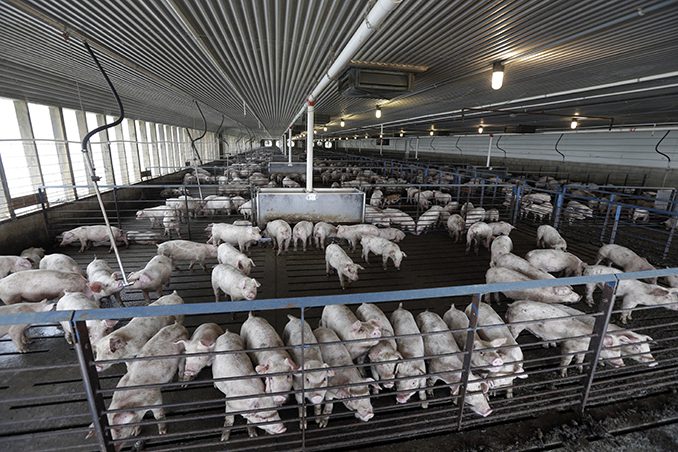
RALEIGH — A new documentary from independent filmmaker Jason Arthurs examining the Smithfield hog farm nuisance trials will be shown twice in the coming month.
“Hog Farmer tells the untold story of Joey Carter, a North Carolina hog farmer who found himself at the center of a federal lawsuit involving some of the nation’s most ruthless trial lawyers and one of the world’s largest food companies,” the film’s website reads.
“This documentary tells the powerful story of a North Carolina hog farmer and how a series of lawsuits impacted his family and community,” NC Pork Council CEO Roy Lee Lindsey said in an email statement to North State Journal. “It’s a ‘must watch’ for anyone interested in our state’s agriculture industry.”
“While the lawsuits attracted national and international media attention, Joey’s story has yet to be told,” reads the film’s description. “This film is about what happened to Joey, his family, and his farm over 30 years.”
Hog Farmer: The Trials of Joey Carter was screened in eastern North Carolina at the University of Mount Olive on Tuesday, Sept. 26 at 6:30 p.m., and will also be shown at the Ed Emory Auditorium in Kenansville on Thurs., Oct. 4 at 6:30 p.m.
Panel discussions about the film will take place after each screening.
The hog farm case made national headlines and began in 2014, when 541 citizens in North Carolina sued Murphy-Brown LLC, the hog division of Smithfield Foods, for alleged environmental damage, affecting community health and property enjoyment as a result of smells plaintiffs claimed came from hog farm waste stored in open-air lagoons.
In May 2018, a judge ruled against Murphy-Brown, awarding $50 million to 10 neighbors of a hog farm located in Bladen County. The breakdown consisted of awarding $75,000 in compensatory damages per complainant. An additional $5 million in punitive damages was also awarded, but the amount was later reduced to $2.5 million due to the punitive damages cap in North Carolina.
The ruling in the case was the first time a claim of “environmental racism” had been deployed. Attorneys for the plaintiffs made the argument that hog farms impacted Blacks disproportionately because they are mostly concentrated in a rural area of eastern North Carolina. That region has been dubbed by some as the “Black Belt,” due to the area having higher rates of poverty and people of color. Yet, the trial court and appeals court both appeared to disregard most farms in that region, as well as the rest of the state, had been established for generations.
That same spring as the ruling came down, legislators passed the Farm Act of 2018 to protect the state’s farmers from nuisance lawsuits. The measure passed down partisan lines in most of the votes conducted in both chambers. Governor Roy Cooper vetoed the bill, but had his veto overridden 74-45 in the House and 37-9 in the Senate.
Murphy-Brown appealed the 2018 ruling and asked for a new trial. In 2020, the Fourth Circuit Court of appeals upheld the 2018 verdict in a split ruling.
“The 4th Circuit’s split decision today rightly finds that the district court in this matter did not follow the law in North Carolina in regard to how punitive damages are decided and awarded, Keira Lombardo, Smithfield’s Chief Administrative Officer, said at the time of the Fourth Circuit ruling. “The lower court’s actions in this case allowed plaintiffs’ attorneys to unlawfully inflame the jury. This resulted in outrageous awards by an urban jury against a highly regulated rural farming operation.”
In late June 2021, various environmentalist groups filed lawsuits in an effort to have NC laws limiting nuisance lawsuits against farming operations declared unconstitutional.
Watch the trailer: https://youtu.be/1RHTgRnVdS0



